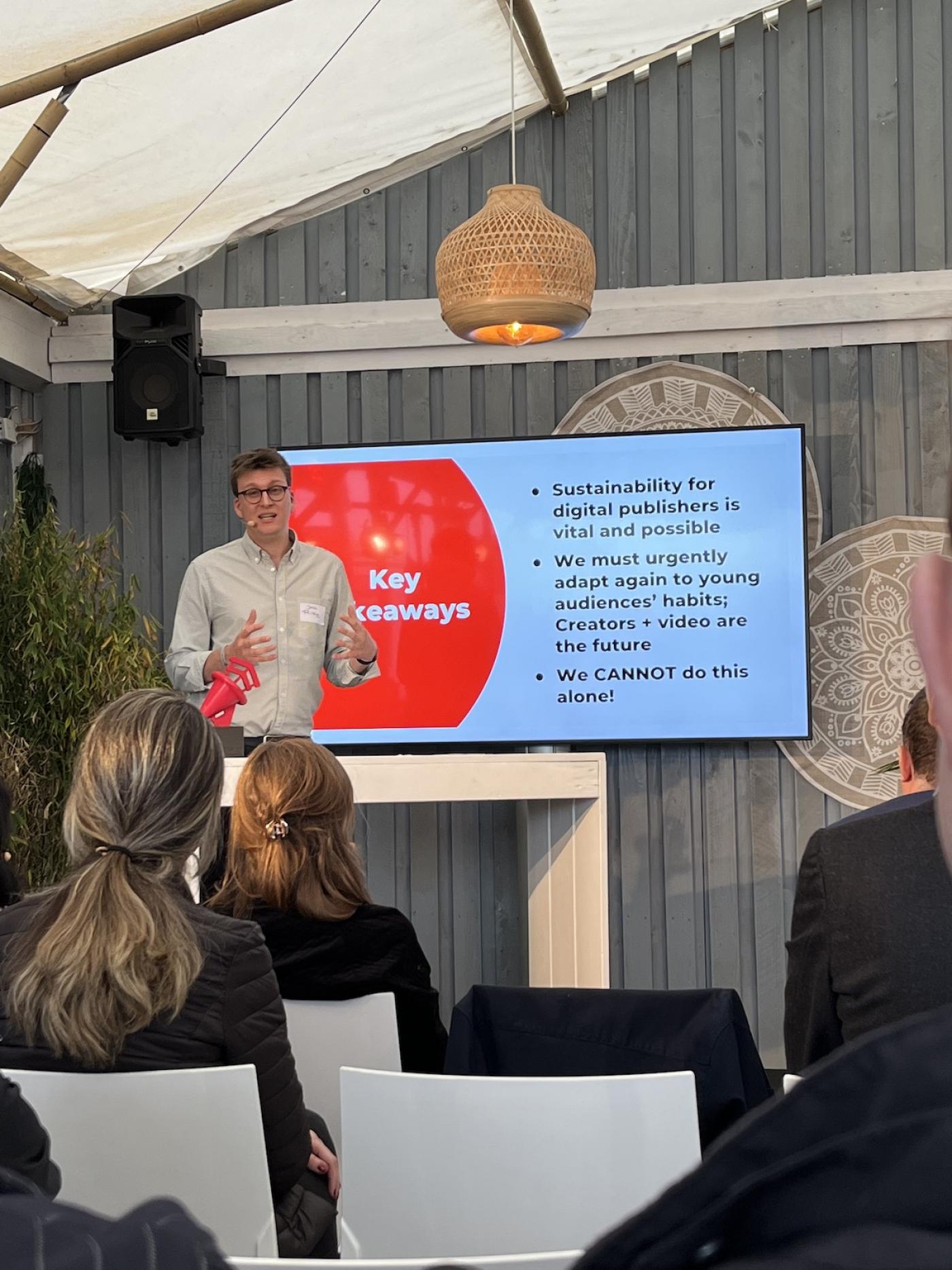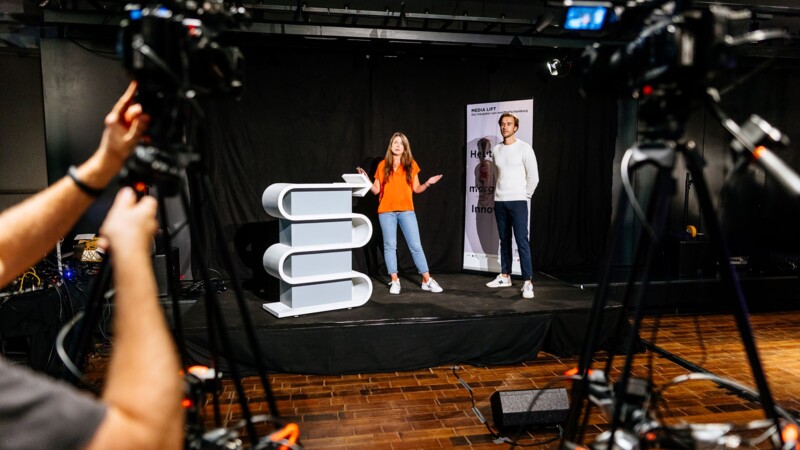In his opening address, Dr Carsten Brosda, Senator for Culture and Media, pointed to the tension which journalism is experiencing nowadays. In terms of democratic processes, the question of how everyone can participate is fundamental. Yet, the question of how valuable journalism can be shaped is also important. This brings the keyword "paywalls" into the foray as journalism is both an economic factor and socially relevant at the same time.
Delegates at this year's Scoopcamp conference explored Thursday (September 8, 2022) whether branded content, data and digital creators and other monetization strategies could lead to more revenue in the media industry. Around 140 experts attended the conference, hosted by nextMedia.Hamburg and Deutsche Presse-Agentur dpa, at the Del Mar beach club near the Landungsbrücken in Hamburg.
Creating valuable content
Scoop Award for innovator Jack Riley
Pia Frey, the winner of last year's Scoop Award, presented the Scoop Award 2022 to Jack Riley, Vice-President of Business Development & Revenue Strategy at Buzz Feed News and Huff Post. During his keynote, Riley explored how journalism could finance itself in future and came out in favour of targeting young people and catering to their usage. Digital creators and video formats are the future of the industry and this requires collaboration. Media companies should set up the infrastructure for content creators. Branded content is also a possible source of funding journalism in future, Riley said.
Several means of monetisting news
Luciana Cardoso, Vice-Chair of the News Product Alliance (NPA), presented different ways of monetising news products in her keynote. These go beyond the paywall, as many readers would quickly drop out, if that were the only option. Memberships with exclusive content, collaborations with branded content and an engaging variety of formats, including videos, are just some of the many possibilities. Sponsorships for specific sections, customised content for companies and events are also promising means of monetisation, Cardoso pointed out.

Practical monetisation at FAZ, NOZ
Nico Wilfer, Chief Product Officer at the leading Frankfurter Allgemeine Zeitung (FAZ) daily, gave just some examples of how revenue is generated. The newspaper is aiming to grow the amount of subscriptions from 200,000 at present to 300,000 by 2030 by combining digital editorial and sales. Artificial intelligence is proving an important lever in this strategy. Using marketing automation, FAZ generates user data to calculate the performance of articles. The editorial team works with "predictive AI" to gauge an article's potential for success, Wilfer pointed out. Based on previously published articles, AI recommends whether a new article should be placed in front of or behind the paywall.
Joachim Dreykluft, a member of the board at NOZ Digital, and Jan Hildebrandt, Managing Director of Eimsbüttler Nachrichten, discussed the function of journalism in a democracy. Dreykluft noted:" Democracy needs professional journalism." The willingness to pay for quality journalism exists in large swathes of the population. However, payment models had to be adapted and sometimes different providers' high price margins had to be reduced. News products should be individualised so that users can choose the articles and authors they want to read.
Gaining readers trust and interest
During the closing session, business experts and academics stressed the importance of keeping readers at the centre of attention and argued for a change of perspective back to the interests and users' needs. Data can help clarify their interests. Given the increasing flood of information and a heated debate culture, differentiated reporting is a must. Journalists must come to terms with their roles and explain them to readers. More transparency would go a long towards achieving trust in the media.
nj/sb/pb
Sources and further information
More
Similar articles

Scoop Award 2022 for HuffPost's Jack Riley

"City of Content" highlights diversity of Hamburg's content industry

